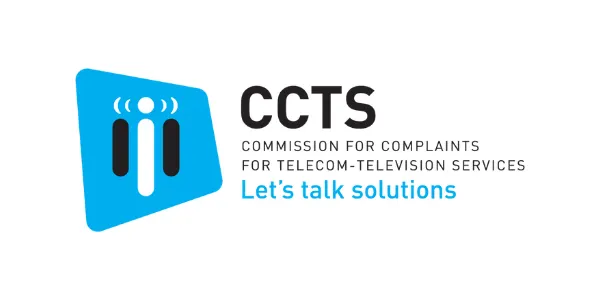
My cellphone contract has a different data plan than what I agreed to over the phone. Can I cancel?
Perhaps your new cellphone doesn’t work as expected. Or maybe your new phone plan isn’t what was promised. The Wireless Code, Canada’s main set of rules for cellphone service providers, offers some protections. Here are steps you can take when you have a problem with a cellphone.
What you should know
If your cellphone contract includes an early cancellation fee, you have a 15-day trial period to see whether the service meets your needs. During this period, you can cancel the contract — for any reason — without having to pay any penalty or early cancellation fee.
To cancel the contract during the trial period, you can’t have used more than half of your monthly limits for voice, text, or data. You must return the phone in near-new condition, in the original packaging.
For persons with disabilities, the trial period is 30 days, and the usage limits are doubled.
If you decide to cancel during the trial period
To cancel during the trial period, be sure to act while you’re still in the trial period. The trial period starts on the date on which your service begins. Within 15 calendar days, return the device to the provider in the original packaging. Also, it’s best to follow-up in writing.
Let’s say you agree to a cellphone contract on the phone. When the service provider sends you a copy of the contract (which they must do, under the Wireless Code), you see that a key term you agreed to on the phone isn’t reflected in the contract.
In such a case, you can cancel the contract without penalty. If the key terms and conditions in the contract conflict with what you agreed to on the phone, you have up to 30 days after receiving a copy of the contract to cancel.
The key contract terms and conditions include:
the voice, text, and data services included in the contract
any limits on the use of those services that could trigger overage charges or additional fees
the minimum monthly charge for services included in the contract
the length of the commitment period, including the end date of the contract
any early cancellation fee, how much it will decrease each month, and when it stops
if you received a free or discounted phone on signing the contract, the retail price of the phone, and the amount you paid for it
If a phone you just bought doesn’t work, you can look to what’s called the legal warranty. Under BC law, certain conditions are implied in every sales contract. Any item you buy has to be:
fit for the purpose you bought it for,
of merchantable quality (not broken or damaged),
durable for a reasonable period of time, and
as described (it has to match the way it was advertised).
This warranty is like a promise by the seller that the phone will work the way it’s supposed to for a reasonable length of time.
The legal warranty applies whether the seller mentioned it or not. It’s on top of any warranty the seller or manufacturer provide.
The end result is that if your new phone doesn't work, you can get it repaired or replaced, or to get a refund, depending on the situation.
That said, the legal warranty doesn’t cover problems you caused. For example, if you drop your phone in the water, you’ll probably have to pay to replace it.
In addition to the legal warranty, many sellers and manufacturers offer their own warranty or guarantee for a product. This is their promise about the quality of goods sold and what they’ll do if there are problems. Read any warranty or guarantee to see if it covers the problem.
Under BC law, a provider can’t use unfair practices to convince you to buy a phone or phone plan. These include making misleading statements, either verbally or in writing. For example, a provider’s ad or salesperson can’t tell you their network is the “fastest” or “most reliable” unless they have solid research to back that up.
Under a related law, a provider can’t do something unconscionable, such as put undue pressure on you to buy or commit. For example, a salesperson can’t tell you that you have to sign a contract immediately to get a “special price” they’re offering.
Another example of an unconscionable act is taking advantage of a disability or language issue that affected your ability to protect your own interests.
If the salesperson did something unconscionable, any contract you signed is no longer valid.
Work out the problem
Before you call or go to the store, do your homework. Read your contract. Understand your rights. Know what you want to get out of this.
Sometimes googling the problem may reveal if this is an ongoing issue with the cellphone service provider or the phone.
You could even discuss the situation with a friend. Ask them how they would word your complaint. Is what you’re asking for reasonable? When you feel wronged, a second opinion can give you more perspective on what you actually deserve.
If you dealt with somebody in person, go back to that store. Ask to talk to the rep who sold you your phone or plan. Discuss your issue with them firmly but politely.
Be clear on the outcome you’re seeking. You may not get everything resolved at once, but don’t leave until you feel you’ve made progress.
Calling to complain
Dealing with phone reps can be frustrating. The first person you speak with is often just a gatekeeper. Calmly describe the problem and what you want. If they can’t deliver, politely ask to speak with their manager or the customer retention department.
Continue to escalate the problem until you get what you want, or a reasonable compromise. Be persistent. The customer service reps are trained to deflect complaints and encourage you to give up. Hang in there. Make notes and take names.
Other avenues to complain
Some providers have an online chat feature where you can talk to a rep over the web. The same rules apply as in store or over the phone — be calm, be firm, and be resilient! Describe the problem and what you want the company to do to solve it. Request specifics of how and when something will be done.
If discussing the situation with the seller or provider doesn’t resolve the problem, the next step is to send them a complaint letter.
The letter should cover these points:
a description of the phone you bought or plan you agreed to (include the date)
anything the other party said that you relied on in making the purchase or contract
details of the problem, including when you first noticed it
what you've done to try to resolve the problem
what you want them to do to resolve the problem
Give a time frame — say, 10 working days — for them to address the issue. You can write something like this:
"I look forward to your reply and to resolving the problem, and will wait until ___________________ [date] before taking my next step. Please contact me as soon as possible at the above address or by telephone at ____________."
Tell them what your next step will be if they won’t make it right. You might say you plan to file a formal complaint with the Commission for Complaints for Telecom-television Services, go online to report the problem, or seek legal advice.
Consider telling your story on social media. Social pressure is powerful. The cellphone provider may be eager to make things right to prove they’re good corporate citizens.
A caution, though: Be factual and truthful about what happened — using foul or insulting language may work against you. If you say something that is untrue, you may expose yourself to a claim against you.
One more thing: It may help to let them know you are going to tell your story on social media. They may decide to fix the problem before you go online.
The Commission for Complaints for Telecom-television Services (CCTS) administers the Wireless Code and deals with consumer complaints about cellphone service.
The CCTS deals with many types of complaints, but not all. For example, they deal with cellphone contract disputes, phone unlocking issues, and service delivery or billing issues. But they don't deal with complaints that a provider charges too much for its services.
You can file a complaint with the CCTS. You must provide:
specific details of your complaint
the steps you’ve taken to resolve it directly with your service provider, and your provider’s response
what you believe to be a reasonable resolution to your complaint
If your complaint falls within the CCTS' mandate, they forward a copy of it to the service provider, inviting them to resolve the matter directly with you. After 30 days, if the complaint remains unresolved, the CCTS can dig further into it, and mediate or recommend a resolution.
Common questions
The Wireless Code and its protections apply to some but not all work phone plans.
If the work plan is with a small business, the Code applies. To qualify as a small business, the monthly bill for all telecommunications services for the business must be less than $2,500 per month.
As well, the Code applies to work plans — regardless of the size of the business — where the employee is responsible for at least some of the charges related to the account. For example, if the employer pays the basic monthly payments but the employee covers data overage or roaming charges, the Code applies.
If the employee isn’t responsible for any of the charges incurred under the work plan (and the work plan isn’t with a small business), the Code doesn’t apply.
You have a legal right to have your phone unlocked, at no charge. If your provider refuses to unlock your phone, you can file a complaint with the CCTS. You must tell the CCTS the steps you’ve taken to resolve the complaint directly with your service provider, including your provider’s response.
Who can help

Commission for Complaints for Telecom-television Services
CCTS deals with cellphone, TV and internet service complaints.

Competition Bureau
Deals with complaints about false or misleading advertising.
